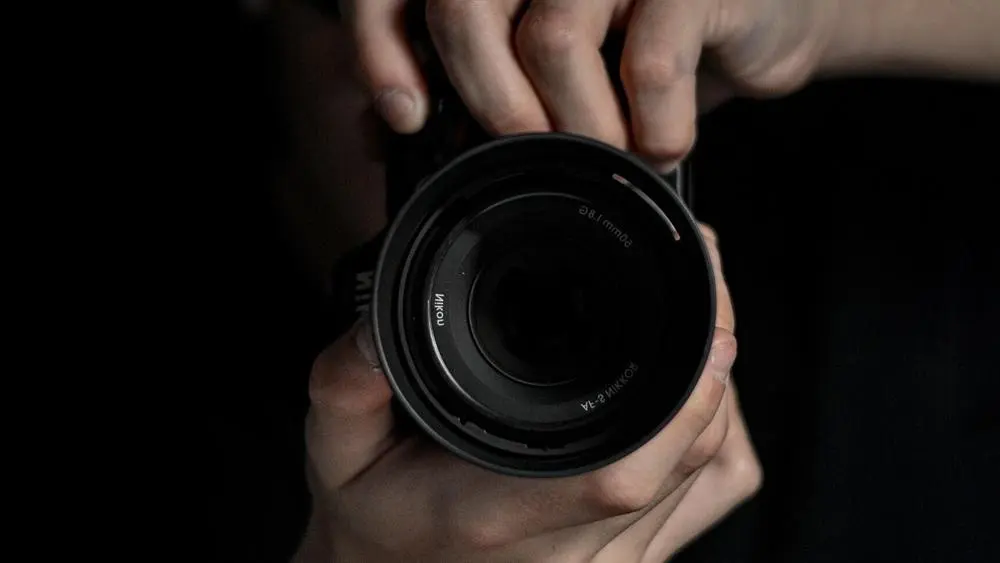
Award winning photographer inspires students
Former student James Cannon returned to Solent to talk to current students about his career journey
18 February 2026
28 October 2025
A unique collaboration between local schools, Hampshire charity Yellow Door, and a researcher from Southampton Solent University has produced a powerful short film exploring the issue of sexual harassment.
In November 2024, The Polygon School and Yellow Door – a charity focused on preventing and responding to domestic and sexual abuse – attended an event together showcasing Screening Sexual Violence, an online resource developed as part of a British Academy-funded research project led by Dr Donna Peberdy, Associate Professor at Solent University. The project examines how film can be used as a tool for education, awareness, and social change.
Inspired by both the resource and a talk from Dr Peberdy, Chloe Foster (The Polygon School) and Wayne K. (Yellow Door) - who were working on a collaborative project exploring violence against women and girls (VAWG) - expressed a desire to create their own film with students at The Polygon School. The boys wanted to show how they could be part of the solution, not just seen as the problem.
Dr Peberdy was invited by Yellow Door to collaborate on the film as part of a broader prevention and early intervention initiative, funded by the Police and Crime Commissioner for Hampshire and the Isle of Wight. The project was supported by Solent University’s expert staff, students and the use of its professional film and television facilities.
As a former public information filmmaker, Wayne K., Independent Sexual Violence Adviser and Young Person’s Advocate at Yellow Door, recognised the power of film to communicate complex issues. He says:
“This impactful work would not have come together without this wonderful collaboration and everyone’s passion to give young people a voice. It is an experience these young people will never forget. They should be extremely proud of what they have achieved – knowing that their work will help others while learning some fantastic new skills. This short film was truly created by young people for their peers.”
Working with boys aged 12–16 at The Polygon School, Dr Peberdy was joined by MA Film Production student Fergus Mclean and PhD Art in Education student Emma Morrissey. Together, the Solent team ran creative workshops to explore the students’ ideas and help them shape the narrative. The students developed a script and were later invited, along with their teacher and a representative from Yellow Door, to Solent University’s state-of-the-art studios for a script lab and read-through.
Chloe Foster, teacher and Head of PSHE at The Polygon School, is incredibly proud of what the young people achieved through the project and recognises the power of schools collaborating with local organisations such as Yellow Door and Solent University. She says:
“This project began, quite humbly, in a coffee shop in Portswood back in July 2024 – a charity and a school coming together to explore creative ways to support young people in navigating complex conversations about VAWG, and how to approach these issues meaningfully in schools.
“I am extremely proud of the project we designed together, the journey our students have been on, and the incredible experiences they’ve had through this unique collaboration. I believe this film represents a valuable resource for schools to use within PSHE lessons, created by students to inspire and educate their peers.
“Donna and Solent University have been absolutely incredible. From empowering students, to shaping scripts, to handing over real tech and trusting our young people to use it – they didn’t just help us make a film. They helped young people find their voice.”
The resulting film, Now Your Turn, was shot over the summer, with students from both The Polygon School and Crestwood Community School taking on acting and filmmaking roles. Director Fergus says:
“There is a unique magic to a film set, amongst the logistical challenges, that brings a strong sense of unity to a group of people. Watching the boys develop – from averted eye contact and nervous laughter to genuine sincerity and important conversation through the journey of a shoot day – has been hugely gratifying.”
On Thursday 23 October, the University rolled out the red carpet for a special screening of the film to celebrate the students’ achievements. Alongside families and teachers, organisations from across the region attended the packed event – with many requesting copies of the film and expressing interest in collaborating with the University on similar initiatives.
Dr Donna Peberdy says:
“We’ve been overwhelmed by the reaction to both the film and the wider Screening Sexual Violence project. It’s a reminder of why creativity and practice-led research matter in education. It’s not just about teaching facts or ticking boxes – it’s about giving young people a voice, a platform, and a chance to shape the narrative. That’s what makes this work so powerful.”
“This isn’t just a short film – it’s the result of a process that empowered young people, sparked meaningful conversations, and showed that boys can be part of the solution, not just the problem. That was their aim from the start: to make a film with the message that boys can help end violence against women and girls.”
Now Your Turn will be available to watch for free on the Screening Sexual Violence resource soon. Register here to receive an alert when it's available.
Screening Sexual Violence is an innovative online educational platform created in association with the 16 Days 16 Films festival and NGO. The resource features a curated selection of award-winning short films by female filmmakers from around the world – including many not previously available to the public. Each film is supported by research-informed resources, including filmmaker interviews, key discussion themes, and adaptable educational materials designed to inspire, support and inform meaningful conversations about sexual violence.
